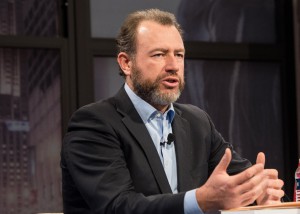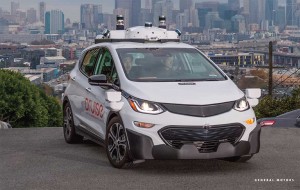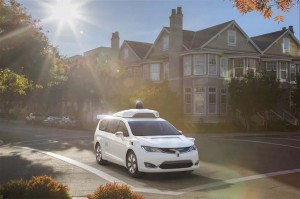
GM President Dan Ammann said recently that the company's focus on cybersecurity is critical to its long-term goals.
The operation of self-driving vehicles will require an intense focus on cybersecurity, experts said during a conference in Detroit organized by Billington Cybersecurity, which brought together representatives from the automobile and tech industry as well as the government.
Dan Ammann, General Motors president, told the conference that GM cybersecurity is one of “the key enablers” to making GM’s vision of “zero crashes, zero emission and zero congestion” a reality.
“As we continue to develop our Autonomous Vehicle program, safety is paramount, just like it is in everything that we do,” Ammann said. “For our customers, that means providing the safest products possible, including the strongest cybersecurity.”
“In today’s connected vehicles, safety and cybersecurity are one and the same,” Ammann added.
(Bill allowing national testing for autonomous vehicle testing remains stalled. Click Here for the story.)
Ammann also said must collaborate to prevent security breaches and thwart bad actors. “The public and policymakers would view a major cybersecurity incident involving any one of us … as an incident involving all of us,” added Ammann.
“At General Motors, we view cybersecurity as a shared concern with the rest of the industry,” said Ammann, noting Ammann also any breach of cybersecurity could “cripple” the development of AVs.
“Our collective customers are best served by industry-wide collaboration and solutions,” Ammann said.
“Cybersecurity is the cornerstone of autonomous and connected driving,” noted Thomas Billington, founder of Billington Cybersecurity as he opened a conference on cybersecurity his firm had organized in Detroit.
(Click Here for more about Nissan’s efforts to test autonomous vehicles.)
“There is no magic bullet,” noted Heidi King, deputy administrator of the National Highway Traffic Safety Administration. The challenge is to build a culture of strong risk management that searches for threats and vulnerabilities, she said.
“Public confidence is key to technology deployment,” King said. Collaboration and cooperation between government, suppliers and manufacturers is one of the keys to a broad system of cybersecurity in an industry where it has been something of an afterthought up until recently.
Michael Chertoff, former U.S. Secretary of Homeland Security and an expert on terrorism as well as cybersecurity, also told the conference that “security by design” is critical to protecting against cyberattacks. The threat of terrorists taking operational control of a vehicle without directly taking is critical in an era when the industry is moving closer to putting autonomous vehicles on the road.
There are also nation states, such as North Korea, Russia and China to name three that have used hacking to spy on the U.S. or to achieve specific objectives such as stealing trade secrets or technology.
(Three quarters of Americans “too afraid” to ride in self-driving vehicles. Click Here for the story.)
In addition, the necessity for any industry or individual enterprise to safeguard the data gathered customers or users is also critical, Chertoff said. The recent experience of Facebook, which saw its stock value drop dramatically on Wall Street, underscored just how critical protecting data has become, Chertoff added.


